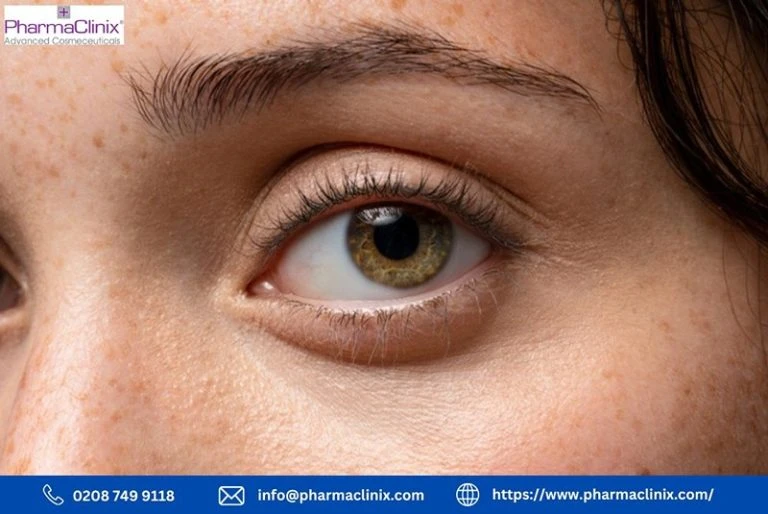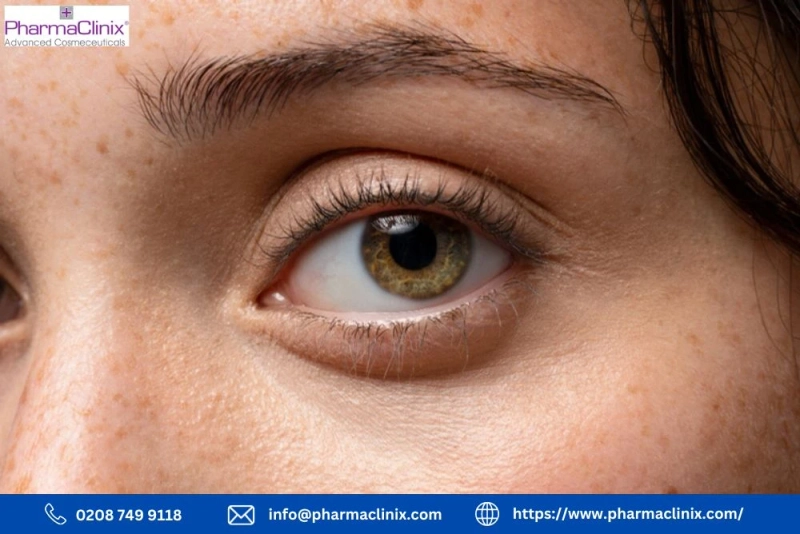When dealing with the distressing issue of hyperpigmentation under eyes, individuals often find themselves struggling with confidence and self-esteem. The darkened patches can cast a shadow on one\'s appearance, affecting how they perceive themselves and how others see them. But fear not, for understanding the root causes and effective treatments for hyperpigmentation under eyes can bring a glimmer of hope. By delving into the world of skincare and exploring various remedies, individuals can embark on a journey towards brighter, rejuvenated skin, reclaiming their confidence and embracing their natural beauty.
Understanding Hyperpigmentation
Hyperpigmentation refers to the darkening of the skin caused by an excess production of melanin, the pigment responsible for skin color. While it can occur anywhere on the body, hyperpigmentation under the eyes is particularly common due to the delicate nature of the skin in this area.
Causes of Hyperpigmentation
Several factors can contribute to hyperpigmentation under the eyes, including:
- Sun Exposure: Prolonged sun exposure can stimulate melanin production, leading to dark patches under the eyes.
- Genetics: Individuals with a family history of hyperpigmentation may be more prone to developing this condition.
- Hormonal Changes: Fluctuations in hormone levels, such as during pregnancy or menopause, can trigger hyperpigmentation.
- Inflammation: Conditions such as eczema or allergies can cause inflammation, resulting in dark circles under the eyes.
- Age: As we age, the skin becomes thinner, making blood vessels more visible and contributing to the appearance of dark circles.
Types of Hyperpigmentation
Hyperpigmentation can manifest in various forms, including:
- Melasma: Characterized by symmetrical patches of darkened skin, often triggered by hormonal changes or sun exposure.
- Post-Inflammatory Hyperpigmentation (PIH): Occurs following inflammation or injury to the skin, such as acne or eczema.
- Sunspots: Also known as solar lentigines, these are dark spots that develop due to sun exposure over time.

Effective Treatment Options
Addressing hyperpigmentation under the eyes requires a multifaceted approach, incorporating both topical treatments and lifestyle modifications.
Topical Treatments
- Retinoids: These vitamin A derivatives promote cell turnover, helping to fade dark spots and improve overall skin texture.
- Hydroquinone: A skin-lightening agent that inhibits melanin production, effectively reducing hyperpigmentation.
- Vitamin C: Known for its antioxidant properties, vitamin C can brighten the skin and protect against free radical damage.
- Alpha Hydroxy Acids (AHAs): Exfoliating acids such as glycolic acid and lactic acid can help to remove dead skin cells and reveal a more even complexion.
Professional Procedures
In addition to topical treatments, various in-office procedures can target stubborn hyperpigmentation:
- Chemical Peels: These exfoliating treatments remove the outer layer of skin, revealing fresh, evenly toned skin underneath.
- Laser Therapy: Laser treatments can target melanin deposits in the skin, effectively lightening dark spots.
- Microdermabrasion: This non-invasive procedure uses a diamond-tipped wand to gently exfoliate the skin, promoting cell turnover and reducing hyperpigmentation.
Preventive Measures
While treating existing hyperpigmentation is essential, taking preventive measures can help minimize its recurrence and severity.
- Sun Protection: Applying sunscreen daily and wearing protective clothing can shield the skin from harmful UV rays, preventing further pigmentation.
- Gentle Skincare: Avoid harsh skincare products and practices that can irritate the delicate skin around the eyes, exacerbating hyperpigmentation.
- Healthy Lifestyle: Adequate sleep, hydration, and a balanced diet rich in antioxidants can support skin health and minimize dark circles.
FAQs (Frequently Asked Questions)
Q: Can Lack of Sleep Cause Hyperpigmentation Under Eyes?
A: While lack of sleep can exacerbate the appearance of dark circles, it is not a direct cause of hyperpigmentation. However, inadequate sleep can contribute to fluid retention and blood vessel dilation, making dark circles more noticeable.
Q: Is Hyperpigmentation Under Eyes Permanent?
A: In many cases, hyperpigmentation under the eyes can be effectively treated and managed with proper skincare and professional treatments. However, individual results may vary, and some cases may require ongoing maintenance to prevent recurrence.
Q: Can Home Remedies Help Reduce Hyperpigmentation?
A: While certain home remedies, such as applying chilled cucumber slices or tea bags, may provide temporary relief from dark circles, they are not proven to effectively treat hyperpigmentation in the long term. It\'s essential to consult with a dermatologist for personalized treatment recommendations.
Q: Are Dark Circles Under Eyes Hereditary?
A: Yes, genetics can play a role in the development of dark circles under the eyes. If your parents or other family members have prominent dark circles, you may be more predisposed to this condition.
Q: Can Stress Contribute to Hyperpigmentation?
A: Chronic stress can impact various aspects of skin health, including inflammation and hormone levels, which may contribute to the development of hyperpigmentation. Practicing stress-reducing techniques such as meditation and yoga can help promote overall skin wellness.
Q: Is Hyperpigmentation Under Eyes More Common in Certain Skin Types?
A: Hyperpigmentation can affect individuals of all skin types, but it may be more noticeable in individuals with darker skin tones due to increased melanin production. However, proper skincare and treatment can benefit individuals of any skin type.
Conclusion
In conclusion, hyperpigmentation under the eyes can be a challenging condition to manage, but with the right approach, significant improvements can be achieved. By understanding the underlying causes, implementing targeted treatments, and adopting preventive measures, you can effectively address hyperpigmentation and restore a brighter, more youthful appearance to your skin.



